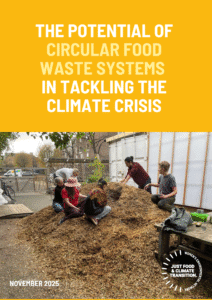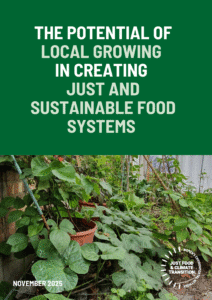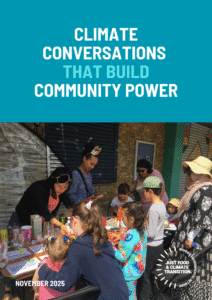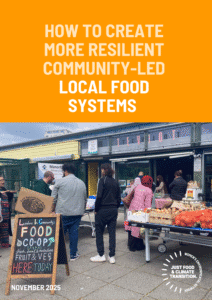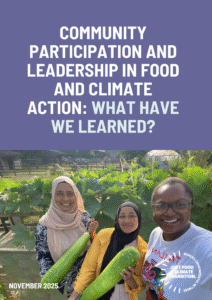The potential of circular food waste systems in tackling the climate crisis
This report shares our collective learning about circular food waste systems from the Just Food and Climate Transition Programme (Just FACT). We hope it can be a useful resource for people who are interested in how community based knowledge and infrastructure can support circular, sustainable food waste systems within UK boroughs.
In this report, we look at how the waste can be minimised through use of food coops, and practices like fermenting and pickling. We explore how composting and wormeries can support community farms and gardens, and how micro-anaerobic digestion offers a route to processing waste at scale. We share the challenges and outline recommendations for how councils, communities and funders can work together to scale up circular food systems and tackle the climate crisis locally.
DOWNLOAD HERE
Summary of key findings
What works well
- Cooking, eating and preserving workshops that bring communities together to collectively prevent food waste
- Workshops focused on cultural learning exchange around food waste prevention
- Community run food cooperatives that enable residents to buy only what they need
- Employing staff who speak community languages and have shared cultural backgrounds with residents
- Specialists supporting residents to look after closed loop systems
What are the challenges
- Residents bringing food waste from flats to local composting sites has had mixed uptake and the reasons for this need to be better understood
- Residents are time poor, so adopting practices like preserving and fermenting food in their routines is hard to achieve
- Collecting and processing food waste can be reliant on volunteers whose attendance can be more ad hoc than employees
- Micro anaerobic digesters need to be piloted at a larger community-scale to reach their full potential
- Gaining local authority permissions to build composting sites can slow down new projects
- Reliance on charitable grant funding creates instability. There is a demand for economically sustainable models that also create local jobs
Summary of recommendations
Increase community engagement around food waste prevention and recycling
- Support communities to set up food cooperatives
- Develop culturally-appropriate public health messaging that meets residents’ concerns about food recycling such as concerns about rodents
- Support initiatives that bring communities together to make the most of food
- Share outputs like compost and fertiliser to benefit local people
Increase the amount of household waste handled at local community composting sites
- Support home and estate-based composting through subsidised equipment and by funding composting workshops
- Explore financial mechanisms to subsidise localised food waste initiatives that complement centralised food waste management services
- Fund community research to provide insights that inform changes to council food waste systems
Contents
- Introduction
- Summary
- Context
- Community-based approaches to tackling food waste in Tower Hamlets
- Examples of circular food waste systems in Tower Hamlets
- Digging deeper: Case studies
- What works well
- What are the challenges
- Recommendations

